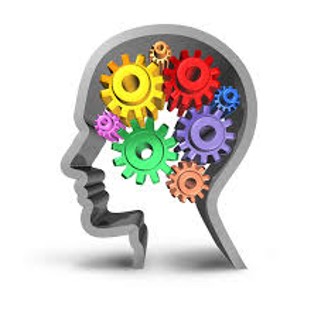Respect for autonomy
Understand the importance of respecting the autonomy of ageing individuals, empowering them to make choices that contribute to their social inclusion aligned with their values and preferences.

Understanding autonomy
What is autonomy?
Autonomy is an individual’s capacity for self-determination or self-governance. It involves deciding for oneself and pursuing a course of action in one’s life, often regardless of any particular moral content.

Importance of autonomy
•In psychology, autonomy is seen as a fundamental human need, essential for well-being, motivation, and mental health.
•Autonomous individuals are more likely to perform better at tasks, achieve their goals, and feel happier.
• Conversely, lack of autonomy can lead to poor self-esteem and worse mental health.
• Autonomy requires alignment of preferences, behaviours, needs, and motivation, allowing individuals to live according to their own direction and interests.
• Exercising autonomy fosters personal growth, learning, and responsibility.
Differentiating between autonomy and independence:
Autonomy means having free will and standing behind one’s actions and values, without being forced to act against one’s beliefs.
One can be autonomous and still depend on others for support, acting according to one’s beliefs while exchanging support and care.
Thinking about autonomy in the context of ageing people with
intellectual disabilities:
• In what way is autonomy important to your services users?
• In what ways can staff support autonomy, even when independence is not possible?
Fostering autonomy
Creating a culture of respect for autonomy
• Start with open communication, encouraging service-users to share their opinions and concerns.
• Provide opportunities for self-directed tasks, allowing people to share ideas and set goals independently.
• Address barriers to autonomy, like discriminatory practices and accessibility issues, to ensure everyone feels empowered and valued.

Strategies for empowering individuals to make autonomous decisions.
• Provide clear and accessible information about their options, encouraging self-reflection on their interests and goals.
• Respect and honour their choices to reinforce their sense of control.
• Create a safe, non-judgmental environment.
• These strategies help individuals feel more confident and capable of making their own informed decisions.

Recognizing and addressing barriers to autonomy
• To support autonomy, recognize and address barriers such as hierarchical structures and cultural differences.
• Hierarchies can stifle individual decision-making. The aim should be to promote a more inclusive and participative environment.
• Cultural differences may impact how autonomy is perceived.
• It is important to be sensitive and adapt approaches to respect diverse backgrounds.
• Identify specific obstacles that each individual faces and tailor solutions to overcome them, ensuring everyone feels empowered to make their own decisions.
Communication skills for respecting autonomy
Active listening is crucial for respecting autonomy, By practicing active listening, you demonstrate respect for the individual’s autonomy and support their ability to make informed decisions.
• Focus on fully understanding the speaker without interrupting.
• Use techniques like maintaining eye contact, nodding, and providing verbal affirmations to show engagement.

• Use simple, clear language
• Paraphrase and summarize what the speaker has said to ensure clarity and understanding.
• Ask open-ended questions to encourage further discussion and show genuine interest.
• Avoid making judgments or offering unsolicited advice, allowing the speaker to express their thoughts freely.
Asking open-ended questions
• These questions encourage individuals to express their thoughts, feelings, and preferences freely.
• Instead of yes/no questions, use prompts like “Can you tell me more about…?” or “How do you feel about…?“
• This approach fosters a more engaging and respectful conversation,
• By using open-ended questions, you create a supportive environment that values their autonomy and encourages independent decision-making.

Communication skills for respecting autonomy
Encouraging and validating individual perspectives.
• Show genuine interest in their views by asking for their opinions and actively listening to their responses.
• Acknowledge their feelings and experiences without judgment, and express appreciation for their input.

Encouraging and validating individual perspectives.
• This validation helps individuals feel heard and respected, reinforcing their confidence in making decisions.
• By fostering an environment that values and respects their perspectives, you support their autonomy and empower them to take control of their choices.
Assignment
Thinking about the communication skills referenced in this module:
• How do you think you can use these to promote and respect autonomy?
• E.g. how can you use active listening, open-ended questions, or validation of perspectives?

Respecting autonomy in decision making processes
• Informed consent is a process where individuals are given all necessary information to make a voluntary and informed decision about their care or participation.
• This means explaining the benefits, risks, and alternatives in clear, understandable language.
• To obtain informed consent, ensure the individual comprehends the information, answer any questions they may have, and verify their decision is made without coercion.
• This process respects their autonomy by enabling them to make knowledgeable choices about their own lives and health.

• Shared decision-making involves collaboration between individuals and their caregivers or healthcare providers.
• This respects autonomy by integrating personal preferences and values into the decision-making process.
• Both parties share information, discuss options, and agree on a course of action together.
• This approach ensures that individuals are active participants in decisions that affect them, promoting a sense of control and ownership over their choices
•In situations where autonomy may be limited, such as emergencies or under legal constraints, it is essential to balance immediate needs with respect for the individual’s rights.
• In emergencies, make decisions based on the best available information and the known preferences of the individual.
• When legal constraints limit autonomy, like with minors or incapacitated persons, involve legal guardians or representatives in the decision-making process.
• Always aim to include the individual’s perspective as much as possible and revisit decisions when circumstances allow, ensuring their autonomy is respected as soon as feasible.

Conclusion
• Respecting autonomy is crucial for enhancing well-being, motivation, and personal growth.
• It allows individuals to live according to their values and preferences, fostering a sense of control and dignity.
• Respecting autonomy not only empowers individuals but also creates more inclusive, supportive, and ethical environments.
• By understanding and implementing the principles and strategies discussed, we can better support the autonomy of those around us, particularly the elderly, ensuring their rights and well-being are upheld.
